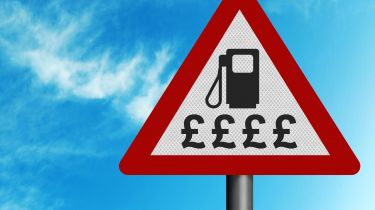Tax to blame for high fuel prices
The OFT has scrapped plans to hold a full inquiry into whether petrol and diesel prices in the UK are being manipulated

High fuel prices are caused by the high level of fuel tax and increasing crude oil prices, according to a five-month investigation by the Office of Fair Trading (OFT).
The watchdog's report on the UK road fuel sector, published on 30 January, states that the market is not dysfunctional and that competition is robust. It also argues that supermarkets' growing share of the fuel retailing industry has helped consumers by keeping prices low.
RAC Foundation director Professor Stephen Glaister said: "This report will give only limited comfort to the UK's 35 million drivers who continue to pay near record prices at the pumps, but the OFT does identify the true cause of drivers' misery – the Chancellor and crude oil prices. About 60 per cent of the pump price is accounted for by fuel duty and VAT and we would now call on retailers to provide a breakdown on till receipts to show exactly what proportion the Exchequer is creaming off."
The OFT found that, pre-tax, the UK has some of the cheapest fuel prices in Europe. But in the 10 years from 2003 to 2012, prices at the pump increased from 76 pence per litre (ppl) to 136ppl for petrol and from 78ppl to 142ppl for diesel. This was caused largely by an increase of nearly 24ppl in tax and duty, and 33ppl in the cost of crude oil.
While the report acknowledged that the growing dominance of supermarket forecourts had squeezed out thousands of independent operators in recent years, the watchdog said it found no evidence that this had reduced competitiveness.
"The supermarkets' high throughput per forecourt and greater buying power has allowed them to see fuel more cheaply than other competitors," the report states, adding: "In august 2012, for example, the average price of petrol at supermarkets was 2ppl cheaper than the average at oil company owned sites and 4.3ppl cheaper than the average charged by independent dealers."
Professor Glaister said: "Some will find it hard to believe but the report does make clear that the fuel market is helping keep prices lower and supermarkets have actually helped competition. Our analysis, which the OFT relied on, shows that 97 per cent of car-owning households are within 10 miles of a supermarket forecourt."
OFT chief executive Clive Maxwell said: "We recognise that there has been widespread mistrust in how this market is operating. However, our analysis suggests that competition is working well, and rises in pump prices over the past decade or so have largely been down to increases in tax and the cost of crude oil."
The report did highlight the OFT's concern about a lack of pricing information on motorways – and said it would not rule out taking action in some local markets if there is evidence of anticompetitive behaviour.
What's your view on the OFT's report? Do you agree with the findings? And what do you think should be done next? Tell us your thoughts in the comments section below.


